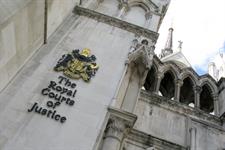A landmark tribunal case could result in whistleblowing protections being extended to cover charity trustees, lawyers have said.
Nigel MacLennan, former trustee and president-elect of the British Psychological Society, was expelled from the charity in 2021 amid “persistent bullying” allegations, which he strongly denied.
MacLennan claimed at an employment tribunal that he should have been afforded whistleblowing protections after he uncovered what he called “serious concerns of corporate governance failings within the BPS, including potentially illegal practices”.
His expulsion from the BPS caused “profound damage to his reputation and career” and significantly affected his mental health, a statement on his behalf said.
The tribunal rejected MacLennan’s claim last year and found he was not protected by whistleblower legislation and was not a worker of the BPS.
An appeal against the ruling is this week due to be heard by the Employment Appeal Tribunal in central London, with the outcome having potentially major implications for charity trustees, lawyers have said.
MacLennan, who is being represented pro bono by Chris Milsom at Cloisters Chambers and Oliver Spratt at Morrison Foerster, will argue that he should have been protected because he entered into a contract with the BPS and was fulfilling his legal obligations in blowing the whistle.
He will argue that he and other trustees should be protected from reprisals for blowing the whistle under articles 10 and 14 of the European Convention on Human Rights.
MacLennan said: “Charity trustees and trustees of other vital public organisations have a duty to report concerns of serious failings in the organisations they oversee and can face legal, personal and professional liabilities if they fail to do so.
“Yet in disclosing these failures, trustees are not provided any legal protections and can face financial and career ruin, on top of immense mental and emotional distress when they do so.
“This is what happened to me and there is a serious anomaly that needs to be fixed here if trustees are to be effective in undertaking the essential scrutiny of the organisations they are obliged to protect, without fear of life-ruining reprisal.”
If the situation remains unchanged, trustees would be deterred from taking up public positions because they could find themselves in “the impossible position of having a legal duty to report wrongdoing, but with no legal protections for doing so”, MacLennan said.
The Employment Appeal Tribunal judge presiding over the case, which is due to be heard on Wednesday and Thursday, has made an order inviting the government to take part in the case because of “significant public interest implications”, MacLennan’s lawyers said, although it is not expected to take part.
The Charity Commission and the whistleblowing charity Protect are, however, expected to participate.
Protect will argue that trustees should have rights to receive and impart information in accordance with Article 10 of the European Convention of Human Rights, which covers freedom of expression.
Sybille Raphael, legal director at Protect, said she hoped the case would lead to expanded whistleblowing rights.
She said trustees need to feel free to call out wrongdoing when they see it.
“But bringing uncomfortable truths to light is not always welcomed – organisations often become defensive, shooting the messenger rather than addressing the issues raised,” she said.
“This is why the law needs to recognise and protect trustees as whistleblowers. If we want trustees to come forward, we need to ensure that they have a remedy if they suffer for speaking up.”
A spokesperson for the BPS said: “In 2021, following two independent investigations which upheld allegations of bullying, Dr MacLennan was expelled from the British Psychological Society.
“In early 2023, an employment tribunal concluded that Dr MacLennan was not at any time a worker of the British Psychological Society and the tribunal therefore had no jurisdiction to hear the claims of detriment for making protected disclosures.
“The claim was therefore dismissed. As Dr MacLennan is now appealing this judgment, we believe that it would not be appropriate for either party to comment further at this stage.”
